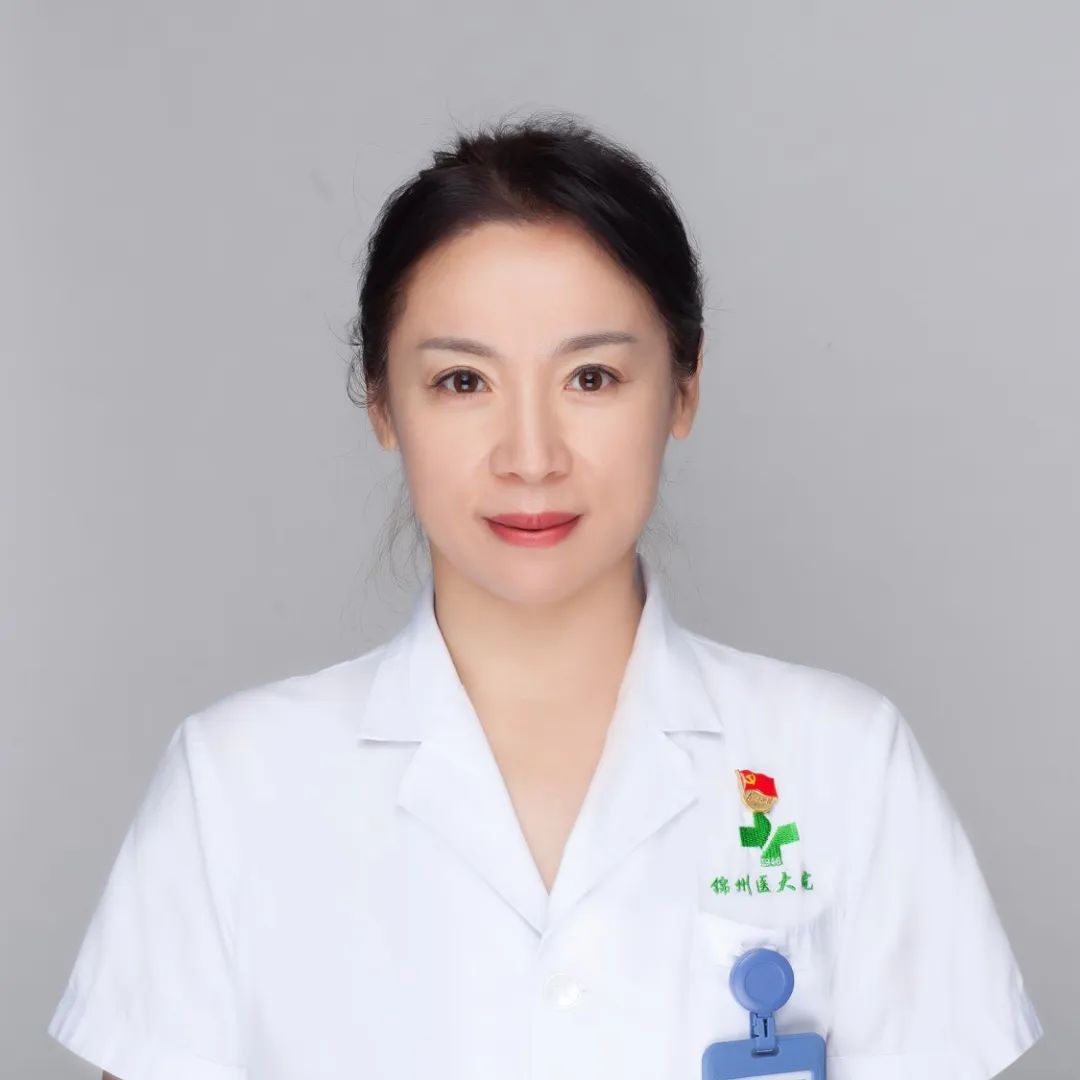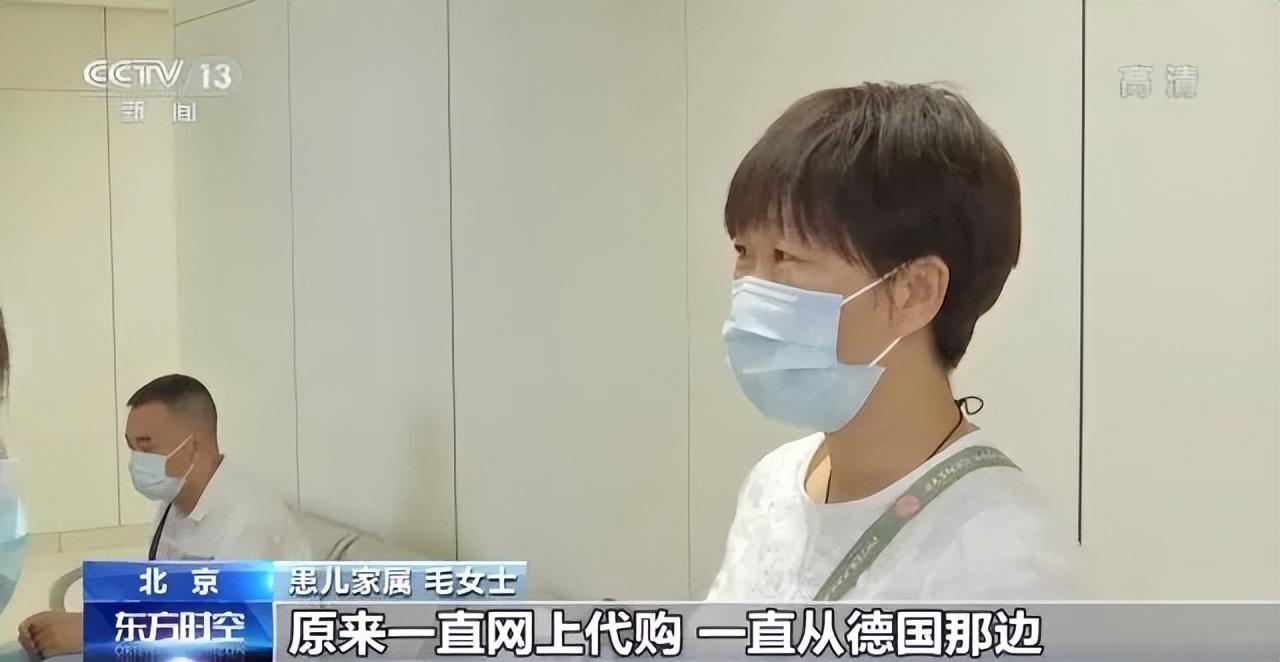Medical Sound · Medical Road | Hope to the starry sky -explore the road of back -line treatment of late bowel cancer in China
Author:Cancer Channel of the Medical Time:2022.09.27
*For medical professionals for reading reference

Chinese patients, Chinese studies, 中国 中国 中国 中国 中国 中国 中国 中国 中国 中国 中国 中国 中国 periodic cancer diagnosis and treatment
With the excellent effects displayed in the Concur Study [1], FRESCO Studies [2], Terra Study [3], Rigefii, 呋喹ntinib, and TAS-102 (infinylidine) were approved The listing has added treatment options for the three -line treatment of colorectal cancer in China. The choice of three -line therapy drugs is unprecedented, which is not the same as before, but it also brings the confusion of how to choose the medicine for clinicians, and the question of where the back line goes.
In this context, the "medical community" specially planned medical voice · medical road series activities, invited Professor Wang Yusheng from Shanxi Cancer Hospital and Professor Wang Zhenghua, the First Affiliated Hospital of Jinzhou Medical University, shared the important thing about the treatment of advanced colorectal cancer treatment Viewpoint and treatment experience.
How to choose three -line drugs?
Refer to the recommendation and research evidence of the guideline, and the individual choice after comprehensive consideration
"In the past, patients with advanced colorectal cancer generally went to third -line treatment. Although the patient's physical condition was still good, it was basically no choice. Now, there are more choices for third -line treatment!"
How to choose for three oral drugs-chimotinib, Richfini, TAS-102? How do I choose about two small molecules TKI -Riigefini and chimotinib? It has always been a problem that plagues clinicians. "For the choice of third -line drugs, the Fresco Hybrid Research [4] published at the China Clinical Oncology Society (CSCO) conference last year can provide some help and reference information." Patients for test groups treated with 治 治 治 使用 and patients with other TKIs in the real world were used for tendency matching analysis. The results showed that the median total survival (MOS) of the patients in the 替 (MOS) was significantly extended (9.3 months vs 6.6 months), and the no progressive survival time (PFS) of the 呋喹binib group was significantly extended than other TKI groups ( 3.71 months vs2.49 months), 呋喹 呋喹ibini showed significant PFS and OS benefit advantages. In terms of security, the results of FRESCO research show that the safety of cytinib is good, and the real world application also shows that the safety of cadinib is better. The common adverse reactions are hypertension, hand and foot skin response. Mild.
Professor Wang Yusheng said that when choosing drugs in clinical practice, the first thing to consider is "both should be right and medical insurance." Drugs within the scope of medical insurance have both evidence -based medical evidence and permission, and are the first consideration of treatment options. In addition, the patient's physique, economy, and tumor load must be considered, and the past treatment drugs are analyzed in order to select the drugs that may benefit in subsequent treatment. At the same time, for some drugs that have not entered medical insurance, they often choose clinically. For example, patients with micro-satellite unstable (MSI-H) have advanced bowel cancer patients, and first-line treatment may be recommended by the current clinical research data and guidelines to choose immune examination point inhibitors for patients. Although these drugs have not entered the medical insurance, they are not as good as the drug within the scope of medical insurance, but sufficient evidence proves that MSI-H patients can benefit more from the treatment of immune examination point inhibitors. It is more likely to benefit medicine. Therefore, I hope these drugs with sufficient evidence can enter medical insurance as soon as possible to benefit more patients!
Professor Wang Zhenghua pointed out that the recommendation of clinical guidelines is based on the large -scale phase III clinical trials. In clinical, when choosing the treatment of drugs, the recommendation or suggestions given by the clinical guide should be selected according to the real situation. Real world data is also an important basis for choice. In addition, in the choice of three -line therapy drugs, the efficacy must be considered, but also toxic and side -to -side reactions, quality of life, whether there are metastasis, and medication channels for important organs, etc. The appropriate treatment plan should be selected after consideration. In terms of medication, if intravenous and oral administration can obtain similar effects, choosing oral and more convenient drugs is more conducive to patients, especially in the stage of epidemic.
How to treat antibro vessels?
Antiovascular generation therapy runs through the whole process, and the third -line TKI can still benefit
"Now, although there are many types of bowel cancer drugs, the scheme is generally a single. In the late stage of non -removal metastatic colorectal cancer, the treatment plan needs to be selected according to the state of MSI/MMR, RAS, and Braf. For MSI-H/DMMR, an immune checkpoint inhibitor is recommended, and for MSS or MSI-L/PMMR, its first and second lines are mainly chemotherapy ± targeted therapy. The choice of targeting drugs is mainly anti-EGFR drugs and anti-EGFR drugs and anti-EGFR drugs and Anti -VEGF drugs. "Professor Wang Zhenghua explained that in routine, patients will basically choose anti -EGFR and anti -VEGF in the first and second lines. If the patient Ras and Braf are wild type and the primary stove is located in the left half of the meal, the first line will choose to resist EGFR drugs. If the disease progresses, the second line will be replaced with anti -VEGF drugs. If the patient is RAS or Braf is a mutant type, the original stove is generally not considered: the front line will directly select anti -VEGF drugs, and the second line will also select anti -VEGF drugs across the line.
The more the treatment lines of patients with late -stage colorectal cancer, the longer the total survival period. When receiving the third -line treatment, some patients have received first -line antiovascular generation treatment, while some patients have received second -line antibrokest treatment. Even so, Professor Wang Zhenghua emphasized: "FRESCO and other heavy clinical studies have shown that there is still a significant benefit advantage in the treatment of three -tier anti -blood vessels. It all plays a very important role. "At the same time, FRESCO research also shows that for patients with liver metastatic patients with liver metastasis, even if the first and second -tier experience the treatment of anti -vascular generation, the third -line 呋喹 替 treatment still has the advantage of benefits. In other words, regardless of whether the first and second lines have been used for anti -vascular generation treatment, whether the patient is combined with liver metastasis, the third -line 呋喹 替 treatment has survived benefits. Generally speaking, antiovascular production treatment throughout the treatment of advanced colorectal cancer has a very important role in various lines.
Professor Wang Yusheng also said that in patients with liver metastasis of colorectal cancer, the research evidence of the three -line tadpinib treatment has sufficient evidence and has obvious advantages. She also added analysis that colorectal cancer has a very common metastasis, about 15 % to 25 % of colorectal cancer patients with liver metastasis during diagnosis, while another 15 % to 25 % of patients are primary Liver metastases will occur after the stove root treatment. Among them, the vast majority of (80 % ~ 90 %) of the liver metastases cannot be initially obtained by raw resection [5]. Therefore, liver metastasis has always been a "stumbling block" that restricts advanced colorectal cancer for long -term survival. At present, the MSS endocarcinoma is metastasized on the first and second -line commonly used chemotherapy combined targeted therapy. For example, RAS/RAF wild -type patients may use Siten cashketic resistance, or Bergal bead monocidal. Of course, it is also necessary to consider whether left half of colon cancer or right half colon cancer. By the third line, the treatment strategy will change. Because the effect of continuing cross -line treatment by Bevarzab is not necessarily better than the current three -line choice, continuous clinical venous medication will increase the psychological pressure of patients and affect the patient's psychological state. Therefore, oral small molecular drugs will It is a more appropriate three -line option, especially patients with VEGF inhibitors (such as Berchavar Mipoid), including patients with liver metastases.
How does three -line or back line go?
"1+1 & 2", combined treatment in the future of anti -vascular generation
From the perspective of the guide, the three -line treatment is mainly based on single -drug treatment, including anti -vascular generation TKI and chemotherapy drugs. "FRESCO research shows that the median PFS of the PFS group is significantly extended than the placebo group (3.71 month VS 1.84 months), and OS has extended 2.73 months (9.3 months vs 6.57) [2]. The above -mentioned excellent clinical data cannot fully meet the requirements and desires of the clinicians' extended survival time. If the patient's physical condition is better, we hope to give patients more treatment methods, so that patients have more treatment for treatment to obtain more treatment Yi. "Professor Wang Zhenghua pointed out that during back -line treatment, the improvement of the improvement of the tumor micro -environment cannot be met, and the combined treatment model is an important choice. For example, chemotherapy combined targeted, targeted combined immunity, or chemotherapy combined with combined immunity. It is not difficult to see that in the improvement of the micro -environment of the tumor, it is far from the clinical needs of a pathway and a treatment mechanism. It may require the combined treatment model of "1+1 & 2" or even "1+1+1 & 3" in order to give patients to patients. Bring survival benefits.
Professor Wang Zhenghua also pointed out that related clinical studies including Regonivo Studies [6] after the three-line treatment also showed that the preliminary effectiveness of the antemloda-generated multi-target TKI combined PD-1 inhibitor treatment. Study the value of exploration.
Professor Wang Yusheng added that Regonivo's research opened his mind for the exploration of the three -line combined treatment strategy of advanced colorectal cancer. Regonivo studies and explorates and attempts to generate anti -vascular generation small molecular TKI drugs+immune examination point inhibitors to improve the efficacy of patients with advanced colorectal cancer. Especially for patients with microbrieve stability (MSS), it is expected to benefit from it. At the US Clinical Oncology Society (ASCO) conference in 2021, a clinical study reported by Professor Li Jin explored the preliminary application of 呋喹ntinib and Schidimaru in the field of advanced colorectal cancer treatment. Effective efficacy; 44 patients in the group, the overall objective relief rate (ORR) was 22.7%, the disease control rate (DCR) reached 86.4%, the median PFS was 5.6 months, and the median OS was 11.8 months. The MSS -type late colorectal patients after the failure of the standard treatment for the treatment of the Tidinini combined with the Sini Lister. The two professors agreed that the combined treatment of anti -vascular production is the future development direction. Whether it is combined chemotherapy or joint immunohistocular inhibitor, it is worth further exploring!
Expert Introduction
Professor Wang Yusheng

Shanxi Cancer Hospital Gastroenterology Department
Chief Physician Master Student Tutor
The person in charge of the clinical research of Cancer Hospital in Shanxi Province
Deputy Chairman of the Ethics Committee of Shanxi Cancer Hospital
Deputy Director of Shanxi Stomach Cancer Diagnosis and Treatment Center
Chairman of the Youth Committee of the Cancer Chemotherapy Professional Committee of the Shanxi Provincial Anti -Cancer Association
Secretary -General of Shanxi Medical Association Shanxi Medical Society of Hepatitis Cancer Team
Deputy Leader of the Cancer Group of the Shanxi Medical Association Gastroenterology Committee
Deputy Chairman of the Youth Committee of the Shanxi Anti -Cancer Association E. colorectal Cancer Professional Committee
Deputy Chairman of the Youth Committee of the Liver Cancer Committee of the Shanxi Provincial Anti -Cancer Association
Deputy Chairman of the Youth Committee of the Shanxi Physician Association Liver Disease Branch
Member of the CCO Cancer Cancer Committee
Member of the Gastrointestinal Tumor Committee of the China Clinical Oncology Society (CSCO)
Standing Committee Member of the Beijing Cancer Prevention and Control Society
Expert Introduction
Professor Wang Zhenghua
Chief Physician Master Graduate Tutor

Leader of the Cancer Science Department of the First Affiliated Hospital of Jinzhou Medical University
Director of the Initiative and Research Office of the First Affiliated Hospital of Jinzhou Medical University
Director of the Third Vestinist Zone of the Third Vestin of the Department of Internal Medicine of the First Affiliated Hospital of Jinzhou Medical University
Academic Terminal: Executive Member of the Gastrointestinal Tumor Professional Committee of the China Human Health and Technology Promotion Association
Deputy Chairman of the Gastrointestinal Tumor Society of Liaoning Life Sciences Society
Academic Member of the Cancer Cancer History Committee of China Anti -Cancer Association
Cancer Data and Real World Research Commission Youth Member of the China Anti -Cancer Association Tumor Association Liaoning Provincial Anti -Cancer Association Senior Cancer Professional Committee
Executive Member of the First Tumor Immunization Professional Committee of the Liaoning Provincial Society
The 3rd Standing Committee of the China Anti -Cancer Association of the 3rd Cancer Transfer Professional Committee of the Liaoning Provincial Anti -Cancer Association of Liaoning Province
references
[1].Li J, Qin S, Xu R, et al. Regorafenib plus best supportive care versus placebo plus best supportive care in Asian patients with previously treated metastatic colorectal cancer (CONCUR): a randomised, double-blind, placebo-controlled , PHASE 3 TRIAL. Lancet oncol. 2015 jun; 16 (6): 619-29.
[2].Li J, Qin S, Xu RH, et al. Effect of Fruquintinib vs Placebo on Overall Survival in Patients With Previously Treated Metastatic Colorectal Cancer: The FRESCO Randomized Clinical Trial. JAMA. 2018 Jun 26;319(24): 2486-2496.
[3].Xu J, Kim TW, Shen L, et al. Results of a Randomized, Double-Blind, Placebo-Controlled, Phase III Trial of Trifluridine/Tipiracil (TAS-102) Monotherapy in Asian Patients With Previously Treated Metastatic Colorectal Cancer: The Terra Study. J Clin Oncol. 2018 Feb 1; 36 (4): 350-358.
[4].Jin Y, Li J, Shen L, et al. A multi-center effectiveness comparison study of fruquintinib with constructed external control cohort of other TKIs using real-world data in 3+ line treatment of metastatic colorectal cancer. 2021 CSCO Then, then, then
[5]. The Chinese Medical Association Surgeon Branch, the Chinese Medical Association Surgery Branch Gastrointestinal and Extraordinary Science Group, the Chinese Medical Society Surgery Branch Lighten Surgery Group, etc. ) [J]. China Practical Surgery Magazine, 2021,41 (1): 1-11.
Asco Abstract 2514.
*This article is only used to provide scientific information to medical people, and does not represent the viewpoint of this platform


- END -
Xinjin School has delayed the opening of the school, and the cultural and entertainment venues such as Internet cafes, KTV, movie theaters, chess and card rooms are closed

On the evening of August 29, the District Education Bureau notified the opening of...
Open the first prescription in the country!This "life -saving medicine" landed

With the efforts of the National Health and Health Commission and the State Drug A...